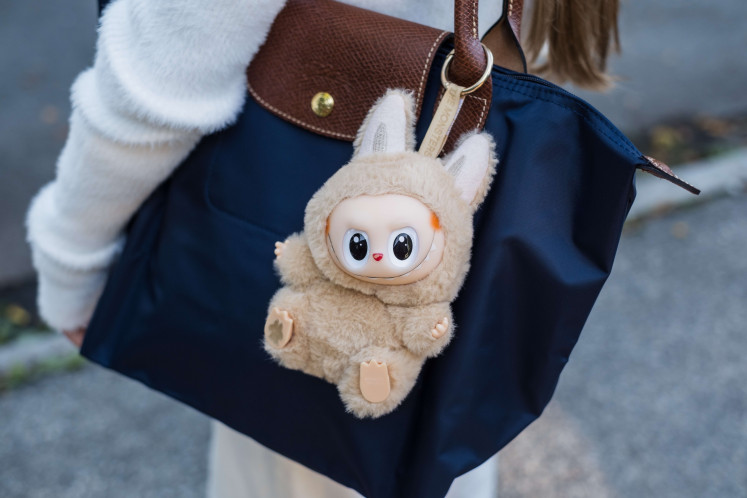Popular Reads
Top Results
Can't find what you're looking for?
View all search resultsPopular Reads
Top Results
Can't find what you're looking for?
View all search resultsPutting mother, child health first
Change text size
Gift Premium Articles
to Anyone
For new mothers, motherhood is both miraculous and worrying.
Pediatrician Natia Anjasari said the health of both baby and mother was strongly influenced by living conditions and knowledge of baby care. Newborns with less educated mothers are three times more likely to die during the first month.
“The first 1,000 days is the phase when the [baby’s] brain is growing the fastest, the intestines are developing and firming, and a child’s cognitive function is forming,” she said during a recent discussion organized by a detergent brand in Jakarta.
The doctor from Brawijaya Women and Children Hospital Jakarta said new mothers should start educating themselves early on about nutrition and hygiene for newborn babies.
More than three million babies were born in Indonesia in 2017. According to UNICEF, for every 1,000 live births, 40 children in Indonesia died under the age of 5 annually. The causes of death included diarrhea (11.7 percent), premature birth (19.2 percent) and pneumonia (15.5 percent).
Anemia is the most common problem affecting pregnant mothers and infants, largely as a result of the loss of red blood cells caused by iron deficiency, which often leads to malnutrition and premature birth.
Natia said nutrition was vital for pregnant mothers and newborns — not only can good nutrition prevent diseases and premature birth, it can also enhance the baby’s brain development and immune system by consuming food rich in DHA, zinc and iron. These vitamins can be found in food such as fish, lean meat and green vegetables.
Breastfeeding undoubtedly offers a tremendous amount of nutrients for children. However, UNICEF data in 2015 showed that only nine out of 34 provinces in Indonesia had a rate of more than 50 percent exclusive breastfeeding for infants aged 0 to 5 months.
Babies are also more susceptible to viruses and bacteria, making the hygiene factor another important aspect that can affect the well-being of mother and child.
The pediatrician suggested the easiest way to maintain hygiene was for parents to wash their hands regularly — mainly before touching, after cleaning and before feeding the baby.
The cleaning method, though a simple habit, could help prevent diarrhea and Upper Respiratory Tract Infection on children.
Aside from diarrhea and stunting, urinary tract infections (UTI) are also common diseases caused by poor hygiene and sanitation. Parents are advised to change the baby’s diaper every 2 to 3 hours, even during the night, to prevent UTI in children.
Currently, information is easily available from various online sources. But actress Chelsea Olivia believes that as a mother, she has to be meticulous with new information, urging new mothers to do monthly checkups and ask for advice directly from pediatricians. ”Information is easily acquired these days, yet it can be easily misleading,” she said.
***
The writer is an intern at The Jakarta Post.











